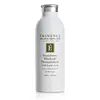What's inside
What's inside
 Key Ingredients
Key Ingredients

 Benefits
Benefits

 Concerns
Concerns

 Ingredients Side-by-side
Ingredients Side-by-side

Water
Skin ConditioningDisodium Cocoamphodiacetate
CleansingBambusa Arundinacea Stem Extract
Skin ConditioningLactic Acid
BufferingGlycolic Acid
BufferingPumice
AbrasiveMandelic Acid
AntimicrobialCitrus Aurantium Dulcis Fruit Extract
MaskingMyristic Acid
CleansingCetyl Alcohol
EmollientGlycerin
HumectantGlycyrrhiza Glabra Root Extract
BleachingCamellia Sinensis Leaf Extract
AntimicrobialCalendula Officinalis Flower Extract
MaskingStearic Acid
CleansingSqualane
EmollientLactococcus Ferment Lysate
Skin ConditioningPhenethyl Alcohol
MaskingCaprylyl Glycol
EmollientEthylhexylglycerin
Skin ConditioningSodium Hyaluronate
HumectantCitrus Aurantium Dulcis Peel Oil
MaskingCitrus Aurantifolia Peel Oil Distilled
PerfumingWater, Disodium Cocoamphodiacetate, Bambusa Arundinacea Stem Extract, Lactic Acid, Glycolic Acid, Pumice, Mandelic Acid, Citrus Aurantium Dulcis Fruit Extract, Myristic Acid, Cetyl Alcohol, Glycerin, Glycyrrhiza Glabra Root Extract, Camellia Sinensis Leaf Extract, Calendula Officinalis Flower Extract, Stearic Acid, Squalane, Lactococcus Ferment Lysate, Phenethyl Alcohol, Caprylyl Glycol, Ethylhexylglycerin, Sodium Hyaluronate, Citrus Aurantium Dulcis Peel Oil, Citrus Aurantifolia Peel Oil Distilled
Oryza Sativa Starch
AbsorbentCicer Arietinum Seed Powder
AbrasiveVolcanic Ash
AbrasiveSodium Cocoyl Isethionate
CleansingAvena Sativa Starch
AbsorbentColloidal Oatmeal
AbsorbentAvena Sativa Meal Extract
SoothingTitanium Dioxide
Cosmetic ColorantSalicylic Acid
MaskingPapain
Skin ConditioningHydrolyzed Walnut Extract
AntioxidantMedicago Sativa Extract
TonicEquisetum Arvense Extract
AstringentCitrus Grandis Seed Extract
AstringentCamellia Sinensis Leaf Extract
AntimicrobialFragaria Ananassa Fruit Extract
Skin ConditioningHydrolyzed Strawberry Fruit
AstringentHydrolyzed Rheum Officinale Root Extract
Skin ProtectingSalix Alba Bark Extract
AstringentVitis Vinifera Leaf Oil
MaskingSilica
AbrasiveLactic Acid
BufferingGlycyrrhiza Glabra Root Extract
BleachingMoroccan Lava Clay
AbrasivePotato Starch Modified
Retinol
Skin ConditioningCalcium Ascorbate
AntioxidantTocopherol
AntioxidantUbiquinone
AntioxidantThioctic Acid
AntioxidantArctium Lappa Root Extract
Skin ConditioningGinkgo Biloba Leaf Extract
Skin ConditioningOryza Sativa Starch, Cicer Arietinum Seed Powder, Volcanic Ash, Sodium Cocoyl Isethionate, Avena Sativa Starch, Colloidal Oatmeal, Avena Sativa Meal Extract, Titanium Dioxide, Salicylic Acid, Papain, Hydrolyzed Walnut Extract, Medicago Sativa Extract, Equisetum Arvense Extract, Citrus Grandis Seed Extract, Camellia Sinensis Leaf Extract, Fragaria Ananassa Fruit Extract, Hydrolyzed Strawberry Fruit, Hydrolyzed Rheum Officinale Root Extract, Salix Alba Bark Extract, Vitis Vinifera Leaf Oil, Silica, Lactic Acid, Glycyrrhiza Glabra Root Extract, Moroccan Lava Clay, Potato Starch Modified, Retinol, Calcium Ascorbate, Tocopherol, Ubiquinone, Thioctic Acid, Arctium Lappa Root Extract, Ginkgo Biloba Leaf Extract
 Reviews
Reviews

Alternatives
Ingredients Explained
These ingredients are found in both products.
Ingredients higher up in an ingredient list are typically present in a larger amount.
Camellia Sinensis Leaf Extract is derived from the leaves of the tea plant. Black tea, green tea, and oolong tea are all harvested from this plant.
This ingredient has many skin benefits:
This ingredient contains polyphenols, a strong antioxidant. Antioxidants help fight off molecules that damage skin cells.
On top of that, the antioxidants in green tea neutralize free-radicals from the sun. This gives the skin some extra UV protection, but should not replace sunscreen.
Many components of tea have anti-inflammatory properties.
Polyphenols and L-theanine help soothe the skin and reduce irritation. The caffeine in Camellia Sinensis Leaf Extract helps calm inflamed blood vessels.
Other compounds found in tea include: Vitamin Bs, linoleic acid, magnesium, calcium, iron, and zinc.
Research has shown both drinking Camellia Sinensis Leaf Tea and applying it to the skin can help boost skin elasticity and hydration. Studies also show using tea extract may reduce sebum, or oil, production.
Learn more about Camellia Sinensis Leaf ExtractGlycyrrhiza Glabra Root Extract is an extract of the roots of Licorice. It has been found to have several benefits such as skin hydrating, conditioning, and soothing.
One component, glabridin, has extra potent antioxidant and soothing properties. It has also been found to block pigmentation from UVB rays in guinea pigs.
Licorice Root also contains a flavonoid. Flavonoids are a natural substance from in plants. Flavonoids also have antioxidant properties.
Another component, glycyrrhizin, has been found to have anti-inflammatory and antimicrobial benefits. This may make licorice root extract effective at treating acne. However, more research is needed to support this.
Liquiritin is one of the flavone compounds found in licorice. It has been found to help lighten skin by preventing tyrosinase from reacting with tyrosine. When the two react, protein is converted to melanin. Melanin is the substance in your body that gives your features pigmentation.
Learn more about Glycyrrhiza Glabra Root ExtractLactic Acid is another well-loved alpha hydroxy acid (AHA). It is gentler than glycolic acid but still highly effective.
Its main role is to exfoliate the surface of the skin by loosening the “glue” that holds dead skin cells together. Shedding those old cells leads to smoother, softer, and more even-toned skin.
Because lactic acid molecules are larger than glycolic acid, they don’t penetrate as deeply. This means they’re less likely to sting or irritate, making it a great choice for beginners or those with sensitive skin.
Like glycolic acid, it can:
Lactic acid also acts as a humectant (like hyaluronic acid). It can draw water into the skin to improve hydration and also plays a role in the skin's natural moisturizing factor (NMF) in the form of sodium lactate.
Studies show it can boost ceramide production to strengthen the skin barrier and even help balance the skin’s microbiome.
To get results, choose products with a pH between 3-4.
Lower strengths (5-12%) focus on surface exfoliation; higher strengths (12% and up) can reach deeper in the dermis (deeper, supportive layer) to improve skin texture and firmness over time.
Though it was originally derived from milk, most modern lactic acid used in skincare is vegan. It is made through non-dairy fermentation to create a bio-identical and stable form suitable for all formulations.
When lactic acid shows up near the end of an ingredient list, it usually means the brand added just a tiny amount to adjust the product’s pH.
Legend has it that Cleopatra used to bathe in sour milk to help reduce wrinkles.
Lactic acid is truly a gentle multitasker: it exfoliates, hydrates, strengthens, and brightens. It's a great ingredient for giving your skin a smooth, glowing, and healthy look without the harshness of stronger acids.
Read more about some other popular AHA's here:
Learn more about Lactic Acid